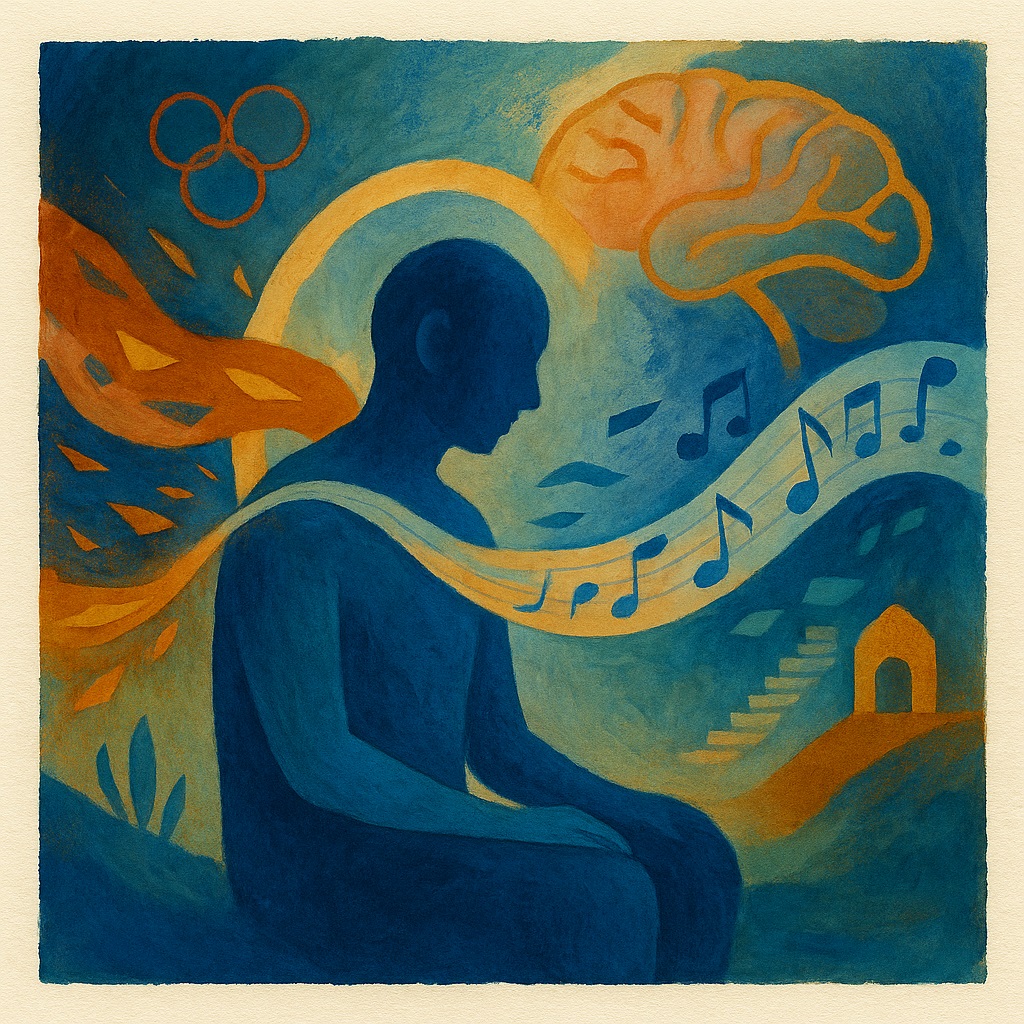There is a simple phrase that many of us have heard from parents, teachers, or friends: honesty sets you free. The idea behind these words is that truth can remove heavy burdens from our lives and allow us to live more openly. In many areas of human experience, embracing truth clears a path for more fulfilling relationships and improved inner balance. In this essay, I examine how truthfulness benefits personal life, affects interactions with others, and has long been considered a guiding principle in music. Drawing on observations from music studies, the discussion details the shared qualities of clarity and candor in both daily life and musical expression.
At its core, honesty means speaking and acting in truth in every situation. When one commits to a life free from illusion, the burden of fabricating false narratives or concealing aspects of one’s identity decreases. An honest person avoids the constant worry of having to maintain a false image. This clarity carries into every area of experience and provides a lasting peace. Living truthfully allows one to discard the extra weight of pretense and instead focus on genuine self-expression. It is a process that lightens the mind and fosters a natural calm.
In human interactions, honesty creates an atmosphere where trust becomes the basis of all relationships. When each conversation contains an element of truthfulness, mutual regard increases. Family members, friends, or colleagues become more willing to share thoughts and problems in a straightforward manner, leading to better mutual understanding. In situations of conflict, expressing one’s true feelings rather than hiding behind a façade clears up misunderstandings. The willingness to confess mistakes leads to a climate where forgiveness and more open connection occur. In this way, truth in communication builds bonds that are more resistant to external pressures.
In professional settings, the tendency to be open encourages a culture where real opinions replace half-truths. In an office scenario where everyone feels free to speak plainly, ideas and proposals pass through a filter of authenticity. An environment where transparent dialogue is the norm gives colleagues a greater sense of security. A leader who accepts responsibility and conveys genuine thoughts tends to inspire a similar attitude among team members. The result is work that proceeds without the cloud of duplicity, allowing the day-to-day processes to run with fewer errors caused by miscommunication. When every individual carries a light conscience, teamwork operates with increased clarity and trust.
The connection between personal truth and honesty naturally finds a counterpart in the world of music. Music is a field that has long celebrated the expression of inner life, often using sound as a medium for conveying sincere emotion. Composers and performers throughout history have found that the act of creating and interpreting music is an exercise in dispelling artifice. A musical composition that originates from genuine personal experience can communicate emotions in a way that resonates with listeners on a level that transcends the superficial. The individual who pours personal truth into notes and chords often finds that the performance not only touches the hearts of the audience but also liberates the artist from self-imposed restraints.
Music studies highlight a connection between authenticity in performance and the reception of musical works. Scholars note that performances which echo personal commitment, rather than those that adhere strictly to rehearsed models, tend to captivate listeners. Listeners in such moments sense that the performer has let personal character guide the interpretation of a piece. Historical examples abound: many noted composers, who were known for their sincere representations of human emotion, produced works that remain valued centuries later. The notion that a piece of music feels “true” to the person playing it is often as important as the technical proficiency displayed. This resemblance to the way honesty in conversation builds trust contributes to the enduring power of music.
A closer examination of certain periods in music history supports this perspective. In the tradition of classical music, composers often used their art to express personal struggles and deep insights about life. The music of the Romantic era provides a clear illustration. Composers of that time frequently aimed to release inner feelings through expansive harmonic language and carefully chosen rhythms. While many engaged in the careful study of form and technique, a central element in their work was the drive to express what lay hidden in their inner world. This honest sharing of personal sentiment through musical notes served as a method for releasing internal tensions. As a result, listeners sensed a connection that extended beyond the written score and offered an experience that felt liberating.
In addition, music studies reveal that authenticity in performance is not limited to any single genre or period. Folk traditions, for example, have long relied on the unfiltered, lived experience of communities. In these traditions, songs are passed down from generation to generation. The transmission of these works is achieved by performers who speak their personal truth through sound and lyrics. The clarity conveyed in these musical exchanges often builds community trust. Listeners and participants share an understanding that each note represents a common experience rather than a constructed or contrived performance. The act of singing authentic stories reinforces the unvarnished truth that many hold dear.
Modern music continues to reflect these themes of sincerity and straightforward expression. In genres where improvisation and spontaneous creation are cornerstones, performers find that relying on their inner truth leads to moments of real artistry. In live settings, when a performer chooses to trust in their well of personal memory and experience, the resulting performance communicates a deeper connection with the audience. Critics and scholars in musicology have noted that moments of genuine expression during performances create a resonance that recorded sound sometimes lacks. This phenomenon demonstrates that truthfulness is not only a matter of content but also of delivery. A true performance, like an honest conversation, benefits from clarity of purpose and the removal of pretense.
Music theory also addresses the concept of truth in art through the analysis of tonal systems and notation practices. Scholars have examined how the choice of certain scales or modes can evoke more direct feelings in the listener. For instance, a minor key, often associated with introspection and solemnity, permits a composer to convey personal narrative without adornment. The manner in which music communicates nuances in emotion through careful selection of intervals emphasizes that there is value in letting sound be a direct representation of a thought or feeling. Such a process mirrors the idea of living honestly; there is an advantage in presenting the self simply, without distorting reality in an attempt to impress or adhere to external standards.
The academic perspective in music also examines textual analysis of song lyrics and instrumental works to understand how authenticity has been represented. Studies in music semiotics show that when a composer opts for unembellished, direct expression, listeners tend to perceive a higher level of connection. The removal of rhetorical flourishes or extraneous effects in favor of unadorned expression can create a musical environment where the message is given room to resonate. This parallels the overall idea that sincere communication opens the door to understanding and peace in human relationships. Just as a clear musical phrase can provide relief to a listener, a truthful utterance in conversation eases the strain of hidden agendas.
A further point of connection between personal and musical truth arises when considering the improvisational nature of certain performances. Improvisation in music demands a deep trust in one’s instincts. Musicians commit to spontaneous creation, sometimes on stage in front of others, relying solely on the honesty of their inner thoughts. The risk associated with improvisation is significant because every decision is made in real time and the performer does not have the security of a rehearsed routine. Nonetheless, the satisfaction that follows such a performance is noticeable not only to the creator but also to the audience. This process demonstrates that allowing oneself to function on personal conviction, despite uncertainties, can lead to a form of liberation akin to that experienced when living truthfully in everyday life.
Integrating these musicological observations with the broader examination of honesty in life, we note that both fields benefit when truth is allowed to set the course of action. In personal relationships or public performances, the application of truth creates an atmosphere where reliance on pretense is minimized. The lightness that follows from admitting mistakes in life finds a parallel in the raw energy of an impromptu musical phrase. On both sides, trust replaces caution, and clarity replaces the need to hide behind rehearsed gestures. There is a clear symmetry between the way individuals who are sincere navigate life and the way musicians who rely on genuine self-expression perform before their communities.
In literature and academic studies, the interplay between honesty and musical practice continues to draw considerable attention. Researchers examine how a direct mode of artistic expression tends to lead to a more lasting and memorable impact on listeners. This insight has implications beyond the concert hall, suggesting that lifestyles informed by personal truth offer not only internal benefit but also a broader social influence. Communities where personal and artistic honesty prevail enjoy a clarity of purpose that tends to translate into more straightforward interactions and a reduced likelihood of conflict.
Living truthfully carries a broad spectrum of benefits. In personal experiences, the mental relief that comes from setting aside the burden of pretense allows individuals to think more clearly. In the realm of music, this type of clarity results in performances that are both sincere and moving. The capacity to deliver a sincere performance without distortion parallels the way in which living without fabrication frees one from the internal strain of maintaining a false persona. When every decision is based on straightforward thought, life takes on a lightness that enhances communication, creativity, and mutual understanding.
In conclusion, the idea that honesty sets you free transcends simple advice and applies to both personal life and musical practice. Embracing truth in everyday interactions relieves burdens that complicate communication and personal growth, while music provides a parallel narrative where unvarnished self-expression produces a unique connection between creator and audience. By following paths marked by sincere expression, whether in a personal journal or on a concert stage, one experiences a liberation that cannot be duplicated by any form of artifice. The transparency found in honest living and in the act of pure musical performance offers a way to reduce personal tension and build lasting trust within communities. In both domains, truth dispels the weight of falsehood, granting individuals and performers alike a freedom that enriches life with clarity, assurance, and the courage to face each day without the burden of deception.
Further Readings
Here are some musicological studies and books that examine aspects of honesty, authenticity, and open self-expression in music:
Philip Auslander – Liveness: Performance in a Mediatized Culture
Source: Yale University Press, 2008
This study investigates how performances and the relationship between live and recorded sound perception remain a topic for discussion. It also addresses the question of the extent to which the perceived genuineness of a musical performance can have a liberating effect on both the artist and the audience.
David Brackett – Interpreting Popular Music
Source: Cambridge University Press, 1992
Brackett analyzes in his book the structures of meaning within the popular music sphere. His approach considers how the unadulterated presentation of music and performance in public perception contributes to building a foundation of trust between artists and listeners.
Simon Frith – Performing Rites: On the Value of Popular Music
Source: Cambridge University Press, 1996
Frith discusses in this work the value of music in public discourse and investigates how the manner in which music is performed influences the perception of genuineness. His contribution provides important insights into the connection between public presentation and internal sincerity in music.
Richard Middleton – Studying Popular Music
Source: Open University Press, first edition circa 2000 (multiple editions exist)
Middleton offers a comprehensive overview of the analysis of popular music, placing the phenomenon of authenticity at the center. He explains how a genuine presentation in musical performances can be experienced as liberating.
These works offer different perspectives on the topic. They address how “open” musical presentations contribute to building trust and the effect that the degree of honesty in the interpretation of music can have on both the artist and the audience. The findings of these studies provide useful approaches to enrich the discussion on honesty in music with well-founded insights from music history and music theory.





